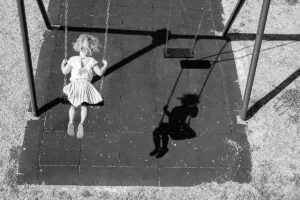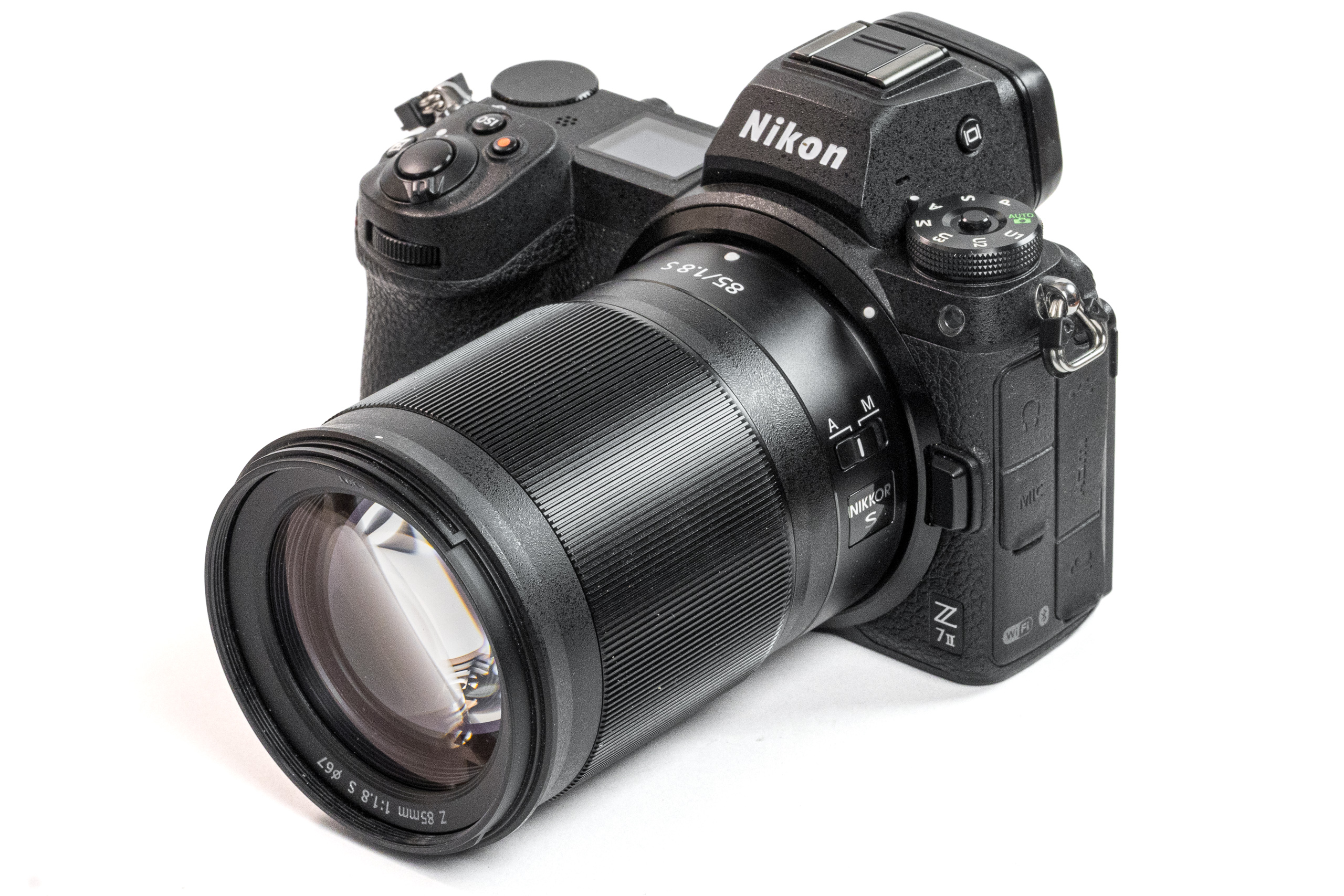
Photographing the wide world can be thrilling, but it’s also not without its dangers. Whether you’re strolling down the streets of Paris or trekking the mountains of Nepal, the threat of losing your cherished (and costly) gear to theft is real. And let’s face it: Losing your gear doesn’t just hurt your wallet. A moment of bad luck could throw your entire trip thrown off track – unless you take proper precautions.
As an experienced globetrotter and shutterbug, I’ve picked up a few tricks along the way to safeguard my gear, and I’m here to share them with you. These tips aren’t some magic shield, but they’re practical, easy to follow, and can significantly lessen the odds of you facing a camera catastrophe. Even better, they’ll provide you with a backup plan in case you do hit a bump in the road.
Ready to confidently capture the world without constantly worrying about your gear? Let’s dive right in!
1. Trust your instincts

When it comes to traveling safely with your gear, the first and most crucial step is to trust your gut. I can’t emphasize this enough. It doesn’t matter whether you tend to worry or not; your intuition is your primary defense mechanism, and it’s essential to listen to it.
Sometimes, your worries might seem overly paranoid, but there could be instances where you’re subconsciously (or consciously) picking up on potential dangers. Do you really want to take that risk when you’re far away from home?
So if you start feeling uncomfortable or sensing something isn’t right, don’t ignore it. Take action to regain your sense of security. Pack away your gear or leave the area if necessary, and prioritize your peace of mind and safety.
2. Opt for a discreet bag

Especially if you’re traveling through rough areas, consider using an old bag to carry your camera and gear. While I haven’t done this myself, I think it’s an excellent idea in the right circumstances. The key is for the bag to appear worn-in and inconspicuous, not falling apart.
Additionally, avoid drawing attention to your bag as a camera bag. Opt for an everyday pack that doesn’t scream “Camera!” Thieves often target individuals with flashy new camera bags, making them vulnerable. By using a more general-looking bag (especially one that’s seen better days!) you’re less likely to be a potential target.
3. Tone down your gear and appearance
If you have a new bag that clearly looks like it’s meant for a camera and swapping it out isn’t feasible, try toning it down. Give the bag a slightly worn and dirty look. I understand that it may not be fun to treat your brand-new camera backpack this way, but it can significantly decrease its appeal to potential thieves.
A pristine new bag sends a message that you may have money and are likely an infrequent traveler, making you a more appealing target. On the other hand, a well-traveled and modest-looking bag lowers the chances of becoming a victim.
Similarly, consider your appearance and dress accordingly. You don’t need to go to the extremes of buying local clothes or blending in entirely, but at least observe how others dress in the area and make some adjustments. Avoid wearing flashy or luxurious outfits that might attract unnecessary attention. The goal is to be a less enticing target, and making a few simple changes can go a long way!
4. Always keep one eye on your surroundings

When you’re out shooting, always keep your non-shooting eye open and remain vigilant. While it’s easy to get absorbed in capturing the perfect shot, it’s essential not to get overly distracted, especially in crowded areas. While the chance of someone snatching your camera is slim, it’s better to be cautious and prepared. Thieves might also target your day bag or purse, so stay aware.
I find it helpful to use the reflection on my camera’s LCD display to check what’s happening behind me. By holding the camera up to my eye and then pulling back slightly, I can pan around while maintaining visual awareness of my surroundings. This simple technique adds an extra layer of safety to my photography experience, and I certainly encourage you to try it for yourself.
And let’s not forget the obvious: never leave your gear unattended in public spaces, even for a short moment. Avoid placing your backpack outside the bathroom or turning away from your tripod-mounted camera, even if you’re desperate. Those are the actions that can lead to unfortunate outcomes!
5. Rely on the buddy system

If you’re fortunate enough to be traveling with a friend, take advantage of the buddy system for photography just as you would for other travel situations. Even if you’re used to solo adventures, a companion can enhance your experience with great company and camaraderie as well as added safety.
Perfecting a system where one person shoots while the other keeps an eye out takes practice, but it’s highly beneficial in crowded environments and busy city streets. Traveling with non-photography friends can be great too; it reduces arguments about who gets to shoot next!
Plus, even if both of you plan to photograph non-stop, traveling with a companion offers significant safety advantages, especially for nighttime outings. It’s a smart choice, and if you know of anyone who might want to accompany you on an upcoming trip, consider inviting them along.
6. Rotate your memory cards
Modern memory cards boast impressive storage capacities, but you shouldn’t fall for the “bigger is better” trap. Putting all your precious photos on a single card is risky. Instead, swap your memory cards often and distribute them strategically, especially if you’re concerned about theft.
Also, if you don’t have a backup solution like a laptop or external drive (more on that in the next section!), consider storing some cards in unlikely places. After filling a card with fantastic shots, take the card out and secure it in a well-hidden money belt. Then, when you get back to your room, hide it in a drawer or in your clothing. (Of course, make sure you don’t forget it when you leave!) Don’t worry about your cards getting out of order; your home computer software can sort the images by capture time later.
7. Make a backup every night

Safety doesn’t end when you head back to your accommodations for the night! I highly recommend bringing along an external hard drive. Then, at the end of each day, you can take a moment to back up all your photos.
When you head out the next morning, you can leave the drive in your room, and you can carry the cards in your camera bag. That way, even if something happens to one set of photos, the other will likely remain safe.
Any standard HDD can work for this, though I’d recommend at least 1 TB of storage as a starting point (you can go larger or smaller based on your trip’s length and shooting habits). Nowadays, spacious drives are affordable and reasonably fast, so they’re perfect for backing up your shots.
For extra security, consider keeping a second hard drive with another copy of your shots or explore cloud backup options. The key is to find the solution that suits you best and ensures you have multiple copies of your valuable images.
Besides safeguarding your photos, this backup-first approach can also provide some protection against corrupted memory cards and alleviate worries about running out of card space during extended trips.
8. Wear your bag safely
Your bag’s position can make a significant difference in ensuring your gear’s safety. In crowded places like markets, consider wearing your camera bag against your stomach rather than on your back. It might look a bit unusual, but it adds an extra layer of security.
If you’re using a backpack, wear it over both shoulders. Ensure that all compartments are zipped up, and if possible, invest in a bag with zipper locks to deter easy access while you’re on the move.
9. Take multiple cameras (but only carry one)

While the feasibility of this tip depends on the space you have available, carrying backup gear can be a smart move in case your main camera or lens gets stolen.
For instance, you could bring a main camera along with a backup camera or a selection of prime lenses alongside a backup zoom. Keep the backup gear safely stored in your room and head out with your primary equipment. If the worst happens and your gear is stolen or lost, you can always go back to your accommodations and switch to the backup.
Plus, having spare equipment not only provides peace of mind but can also save your trip from being ruined by gear mishaps like drops or water damage.
10. Use a safety net or a hard case
When you’re out exploring during your travels, it’s natural to worry about the safety of your valuable photography gear left behind in your room. To provide you with peace of mind, there are some essential travel safety devices you can consider.
One option is a wire mesh safety net offered by companies like PacSafe. These nets are designed to enclose your bag and fasten it to a secure object. You can place your non-essential gear in a smaller bag, add the wire net, and secure it to something solid, though you will need a fixed object for this purpose. While it’s important to note that determined professionals might still be able to break through these nets with the right tools, they’ll certainly serve as a deterrent for opportunistic thieves.
Another reliable choice is to use a hard case for your gear, such as those made by Pelican Cases. These cases are constructed from tough plastic and come with loops to accommodate standard padlocks or cable locks, allowing you to fasten the case to a solid object.
These hard cases are water- and dust-proof, and will ensure your gear stays clean and dry during your travels. They’re also particularly handy when you need to check your gear at the airport.
However, it’s worth noting that hard cases are bulkier than regular backpacks, so carrying them around all day definitely isn’t a good idea (in other words, you’ll want to bring a more portable camera bag, too). Some cases do offer wheels and pull handles to improve ease of use.
11. Use a safe

Some accommodations, including hotels and hostels, offer a main safe that guests can use. Take advantage of this amenity and store any non-essential gear – though do consider taking a photograph of the items you’re handing over in the presence of a staff member. This is similar to counting and getting a receipt for cash you deposit for safekeeping. If the establishment doesn’t provide a receipt, having the photo will serve as your insurance, confirming what you handed over.
Additionally, some hotels provide mini-safes in the rooms, which can be quite useful. These mini-safes aren’t big enough to fit an entire gear bag, but they can accommodate items like lenses, memory cards, hard drives, and small laptops, making them a great option for securing your gear during your daily adventures. They can also come in handy at night if you feel your accommodation is located in a less secure area.
12. Keep a record of your gear
Before embarking on your trip, take the time to create a detailed list of all your photography gear, including the serial and model numbers. Make a couple of copies of this information and store them in a safe place. In the event that your gear is stolen and later recovered, having a list of serial numbers will be crucial for identifying and claiming it as your own. It’s also a good idea to take a picture of your gear before you leave as an additional reference.
On a related note, if you plan to check your camera bag or case at the airport, consider placing an electronic tag in one of the pockets. Not only can this tag be helpful in case the airline misplaces your bag, but it can also alleviate anxiety when you leave expensive gear behind in your room (you can regularly check the tag’s location when you’re out and about!).
13. Keep your gear insured

Don’t overlook the importance of insurance for your photography gear – it’s a small price to pay compared to the cost of replacing expensive equipment! Investing in gear insurance can be a serious stress-reliever.
In the event of a theft, many insurance policies cover the replacement cost of your gear, allowing you to buy new items. Some insurance options even reimburse you for rental equipment if your gear is stolen during your journey. Additionally, gear insurance can safeguard you against accidental damage, which is always a possibility when you’re on the go.
So if you’re concerned about the safety of your camera equipment while traveling, securing an insurance policy can be a wise decision. It ensures you can focus on capturing beautiful moments without worrying about all the unpleasant what-ifs.
How to keep your camera safe while traveling: final words

Keeping your precious gear safe during your travels is of utmost importance, but with a few practical precautions, you can significantly reduce the risk of any unfortunate mishaps.
Whether you’re jet-setting to far-off lands or exploring local gems, always stay vigilant and aware of your surroundings. Trust your instincts, and if something doesn’t feel right, don’t hesitate before leaving the area. And consider taking out a gear insurance policy. It’ll cost far less than the price of replacement equipment, and it’ll offer greater peace of mind, too.
Remember, utilizing safety measures like wire mesh safety nets and hard cases can add an extra layer of protection to your equipment, while you can always use the hotel safe or the mini-safe provided in your room to store non-essential gear securely.
So enjoy your travels, and capture some amazing photos!
Now over to you:
How do you plan to keep your gear safe while traveling? Share your thoughts in the comments below!
GENERAL
PREPARATION
How To Keep Camera Gear Safe While Traveling
LIGHTING
COMPOSITION
GEAR
ADVANCED GUIDES
POST-PROCESSING
BUSINESS
INSPIRATION








 English (US) ·
English (US) ·